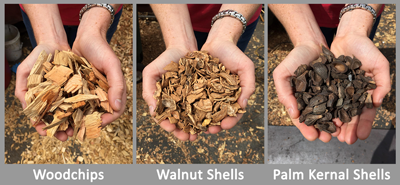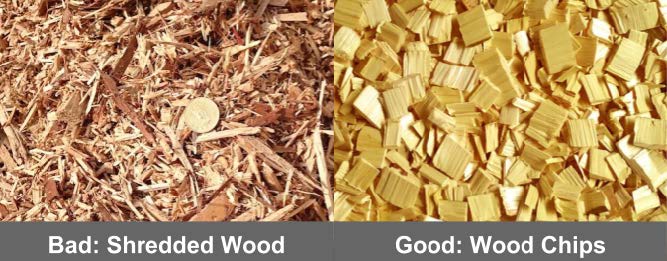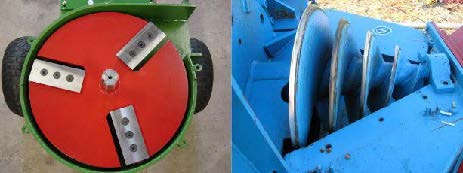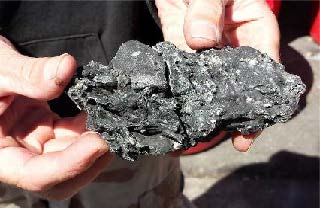Choosing feedstock

The Gen 3 reactor currently used in the Charpallet is much more forgiving about particle size, requiring less feedstock preparation, and expanding the types of feedstocks that may be compatible; for instance, we expect that it will be able to run pistachio shells and pellets. Testing is still in progress and we will update this page with Gen 3 data as it becomes available.
Feedstock fuel must be dry, of the correct shape and size to flow through the reactor, and free of dust, sand and contaminants:
The Gen 2 reactor used in the v.2 Power Pallet PP30 requires its pieces of feedstock be larger than ½ inch (1cm), but smaller than 1½ inches (4cm), with a moisture content between 10% and 30%. Feedstock that is too big can jam the internal feed system. A max of 10% of the feedstock may be smaller than ½ inch because these small pieces can clog the reactor and prevent the syngas from flowing, as well as causing bridging jams in the hopper.
The Gen 3 reactor used in the Charpallet CP25 allows 1/8 inch (3mm) particles up to 2½ inches (65mm). The Gen 3 tar cracking reactor does not require the same void space needed for the downdraft gasifier found in Gen 2 reactors, allowing most feedstocks to be used without sifting.
Feedstock that has smooth-surfaced chips, such as found on most nut shells, make the ideal feedstock. However, most Power Pallet operators use wood chips even though chips that are very rough can cause fuel jams when the pieces lock together to form bridges rather than flowing.
If you intend to use wood chips with the PP30, you will probably want to chip your own with a wood chipper. The two main options are auger chippers and disc chippers. Auger chippers (such as the Laimet brand from Finland) chip to a very regular size depending on the size of the screw auger installed.


While these make very consistent chips, they are much more expensive than the more common disc chippers. While less expensive to purchase, chips from disc chippers need to be sifted to select the right-sized chips, which results in the loss of the feedstock that is either too big or too small. For efficient sifting of large amounts of feedstock, we recommend using a mechanised sifter.
During start up it’s best to use dryer feedstock (<15% moisture) in the bottom of the hopper and top of the reactor.
The best drying method is to chip green wood and then dry the chips by spreading them out on a tarp or screen and leaving them exposed to the sun and wind. This is because dried wood tends to splinter and form rough pieces which tends to cause bridging and jams. We can supply simple plans to build drying racks that use the radiator exhaust to help speed drying..
We often receive inquiries about feedstock compatibility. These lists are true for the Power Pallet with the Gen 2 reactor.

Large Clinker (Fused Ash)